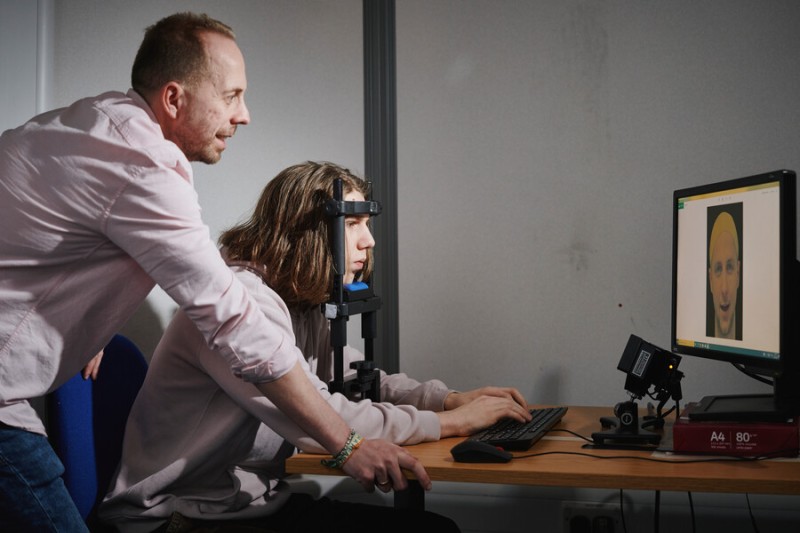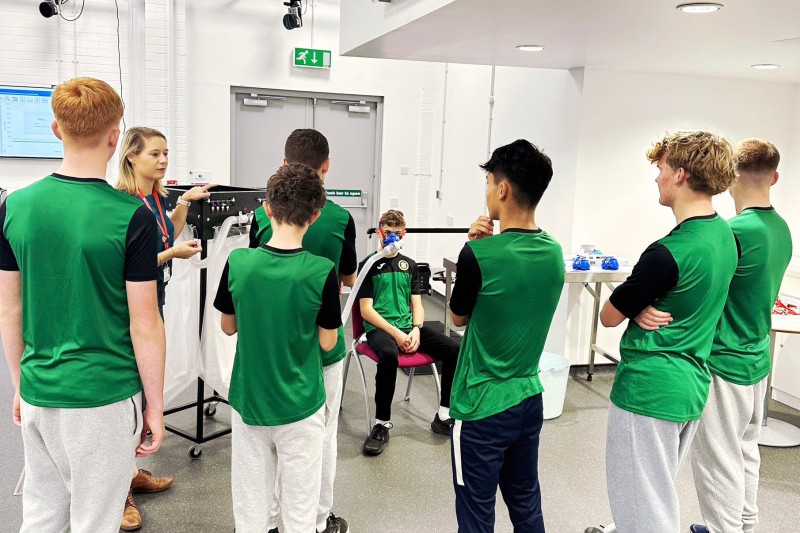Bournemouth University academics have been working with the BBC to highlight the importance of voting.
Lecturers were asked by BBC Radio Solent to put forward their reasons why political engagement is a good thing.
Advertising and media lecturer Dr David McQueen spoke about how this election was different to the two-horse races of the past. “I think that there have been some amazingly exciting developments such as the SNP in Scotland who look like they could sweep every single seat according to some polls.
“We’re on a knife edge where the parliamentary processes seem to be fragmenting before our eyes. We have all these parties who are jostling for power and we look as though we may have a coalition – we are in the margin for error so the pollsters may just get it completely wrong”.
The last time that happened was in 1992, when the pollster’s predictions were way wide of the mark; generally, they are accurate. Is a hung Parliament inevitable this time around?
“The pollsters can get it wrong when there’s this narrow range … between the two main parties. I think it’s wacky races; we could have Labour in power tomorrow, or we could have a clear Conservative majority – that is actually what I have put ten pounds on and I aim to win £75 tomorrow as a consolation to myself”.
Answering the question on whether or not voting in non-marginal seats counted, David was defiant. “People say ‘my vote doesn’t count’ – that is actually one of the biggest reasons that people don’t vote. It comes out that the parties are all the same and what that does is ensure that the people that do vote get all the say.
“Those that do vote tend to be older, tend to be wealthier and tend to be white; that means that those that are younger, poorer, and from ethnic minorities don’t get their say in Parliament. Is it any surprise, then, that Parliament looks the way it does? It looks very male, white and middle class - and if ordinary voters don’t get out there it will stay the same.
“We need to get everyone out there like we did after the Second World War and vote in a party that represents genuine people. Look at the Labour Party after ’45, they set up the NHS, they had free education - they brought through revolutionary change because everyone went to the poll”.
David also encouraged people to vote for their favourite party regardless of their chances of winning this time around.
“Vote for the policies that you believe in because they may not be an MP this time, but first of all, if they get over 5% then they get their deposit back – therefore they can build as a party.
It will help that party grow and when they run for local election they have a much better chance of putting in local councillors. And what you see with someone like Caroline Lucas in Brighton she starting off as a tiny minority vote to an MP in about ten years.
“Once every five years we can have an important say in how this country is run. If we have some period of political uncertainty – that’s great as far as I’m concerned.
“I would like to see the political system shaken up because it’s been far too apathetic and not listening to people, so it’s a good chance to really shake up the system.
Darren Lilleker, Associate Professor in Political Communications spoke about the importance of the student vote. “At the moment young people are the least likely to vote but they should because if they don’t the politicians don’t have to listen to them; they don’t have to design policies that are geared towards them and so they can be ignored”.
“I don’t think that the campaigns have done anything to target students; it’s very much focussed on working people, people looking to buy houses, people with children. They haven’t been talking to people in education – those looking to find that first job and concerned with those early stages in life.”
Responding to a question of how much of a difference young votes make, Lilleker said “In some areas they are around 25% of the electorate, in others 20% - if they all came out and voted it could change the dynamics of some of the local contests.”
So why aren’t young people voting? According to Lilleker it is “because they aren’t being targeted. I think for many people they feel let down by the last election. Even those who were not old enough to vote feel let down by the Liberal Democrats offered a promise and didn’t keep it. So there’s a sense of disconnection from politics, they don’t feel that the parties represent them and they don’t really trust politicians to meet their promises…”
Talking about how politicians can involve young people in politics more, Lilleker said “I think that they do need to look at the issues that young people are concerned about, and they are not simply materialist issues about their own lives. There are also global issues and around the environment that students are concerned and care deeply about. They need to connect with them… and be where they are. And not just talking at them but talking with them [but about] finding the things that they’re concerned about”.
Also giving her opinion on how voting matters was Liisa Rohumaa - the Senior Lecturer in Journalism spoke about the media’s role in politics.
Impressed with Sandi Toksvig’s decision to leave here role as BBC Radio 4’s News Quiz to start the Women’s Equality Party, she described it as “absolutely fantastic - I think we need more parties to bring to the party.
Sandi also believed that social media and the need to attract new generations of voters had given the election “a different feel,” despite believing that this year’s campaigning was rather dull.
Speaking about Russell Brand’s famous avocation for not voting, Liisa said that young people “tend to do the opposite” when told not what to do. Indeed, BU’s 24 hour coverage @YourElection15 proves how passionate young people can be. “BU Journalism students are tweeting madly about the things that interest them whether it’s Trident, whether it’s tuition fees, whether it’s the NHS or local issues.
“Your future is going to be determined by politicians. You need to find out how policy is formed, how they will affect you. You need to be politicised as soon as possible [as] you’re going to have many, many years in which to really think about where you live, who you live with and what kind of country you want to live in.
Closing with her opinions on E4’s decision to not broadcast in an attempt to force people to vote, Liisa said that she didn’t think that it would make a difference. “I tell you what does make an impact … is that all our local politicians in Dorset are about meeting people… at the usual places, but most people aren’t there are they?
“They are working, they are doing shifts, they might be in the library doing their dissertation. But where are these people coalescing? They are coalescing on the internet under social media. So the politicians actually they are very late to the game in really thinking about this and using the internet as their own hustings”.
With polls closing at 10pm tonight, this general election appears to have captured the public imagination more than most. Whatever the result, the face of UK politics may be changing before our very eyes – be a part of it, engage.



